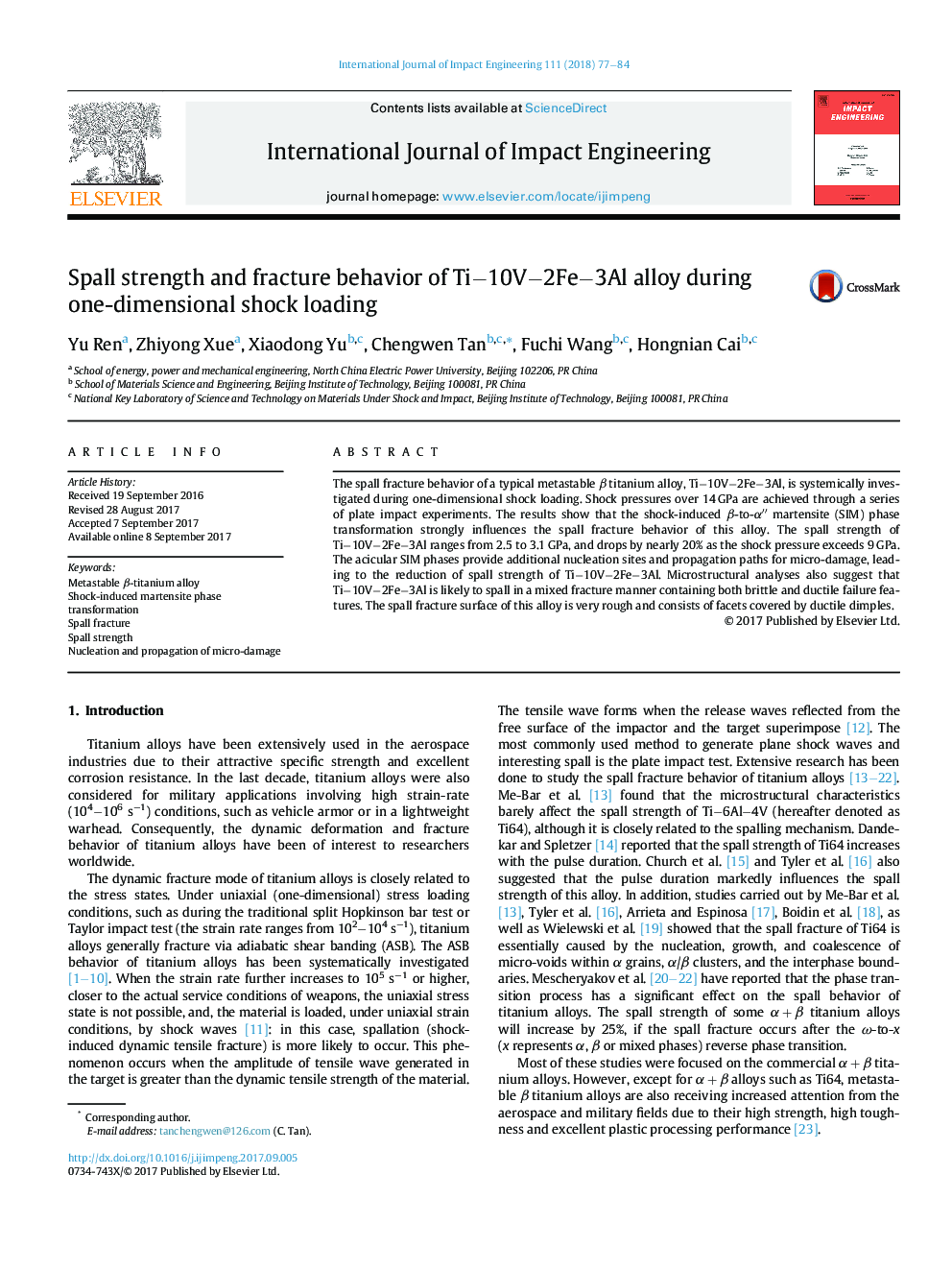| Article ID | Journal | Published Year | Pages | File Type |
|---|---|---|---|---|
| 5015400 | International Journal of Impact Engineering | 2018 | 8 Pages |
Abstract
The spall fracture behavior of a typical metastable β titanium alloy, Ti-10V-2Fe-3Al, is systemically investigated during one-dimensional shock loading. Shock pressures over 14â¯GPa are achieved through a series of plate impact experiments. The results show that the shock-induced β-to-αⳠmartensite (SIM) phase transformation strongly influences the spall fracture behavior of this alloy. The spall strength of Ti-10V-2Fe-3Al ranges from 2.5 to 3.1â¯GPa, and drops by nearly 20% as the shock pressure exceeds 9â¯GPa. The acicular SIM phases provide additional nucleation sites and propagation paths for micro-damage, leading to the reduction of spall strength of Ti-10V-2Fe-3Al. Microstructural analyses also suggest that Ti-10V-2Fe-3Al is likely to spall in a mixed fracture manner containing both brittle and ductile failure features. The spall fracture surface of this alloy is very rough and consists of facets covered by ductile dimples.
Keywords
Related Topics
Physical Sciences and Engineering
Engineering
Mechanical Engineering
Authors
Ren Yu, Xue Zhiyong, Yu Xiaodong, Tan Chengwen, Wang Fuchi, Cai Hongnian,
